Photo: John Shearer/WireImage.com
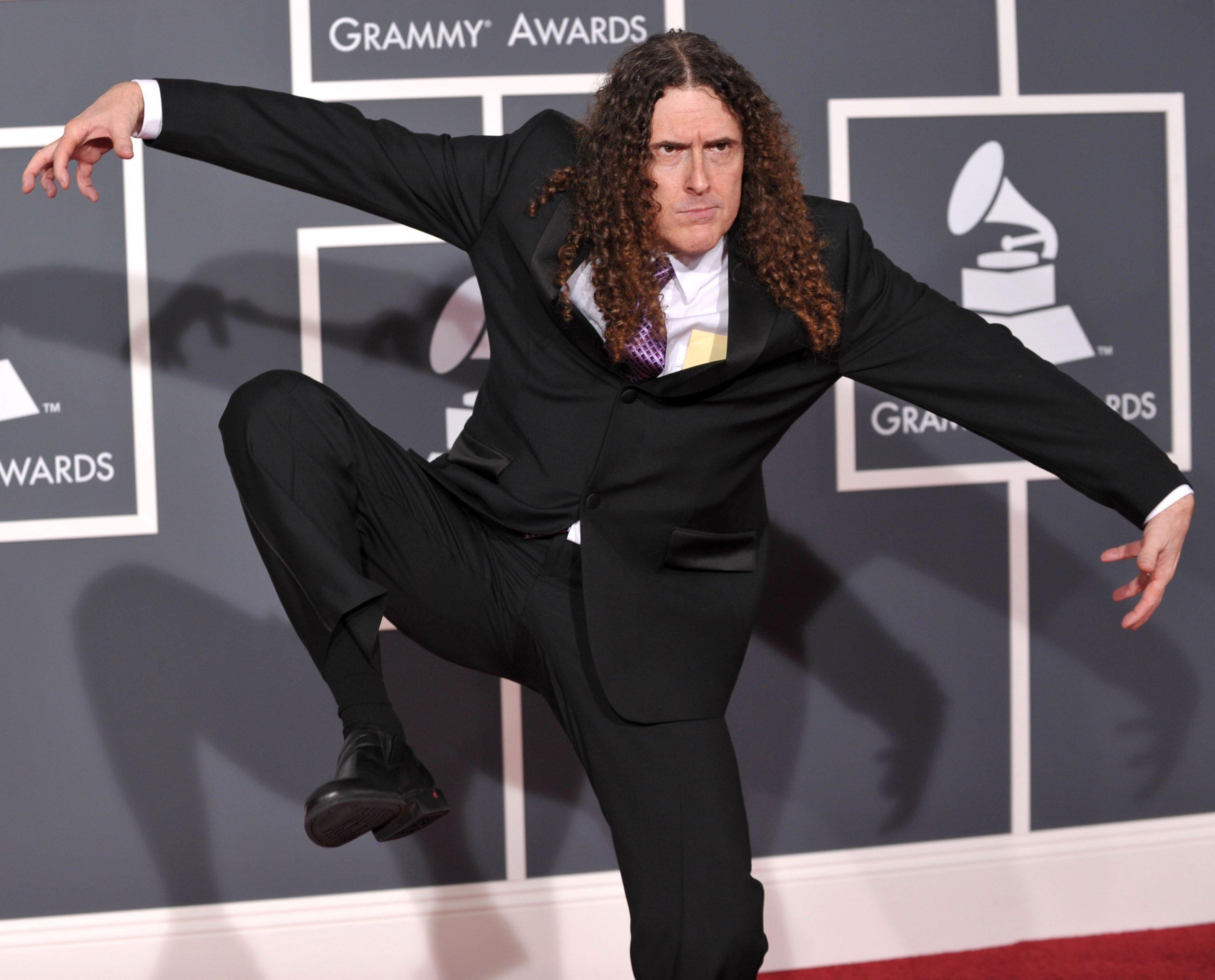
news
The Week In Music: "Weird Al" To Go Gaga?
Lady G may be Yankovic parody target
During the week marking the anniversary of Michael Jackson's passing, "Weird Al" Yankovic, whose biggest hit was arguably his Jackson parody "Eat It," told Reuters he's working on a new album that may include a Lady Gaga parody. If past performance is any indication of future results, some possible timely ideas Al may be contemplating: "Botox Face" and "Mc-Mc-McChrystal."
Apparently, no one's hotter than the Beatles this week: not the Bieb, not Katy, not Lady G. Leave it to the band that's pushing 50 to make headlines even on the anniversary week of Jackson's death. First, Paul McCartney told the BBC he had been commissioned to write a ballet, though he knows little about it. "…I just accept things before I even know what I'm doing," Sir Macca said. Meanwhile, John Lennon's handwritten lyrics for "A Day In The Life" sold at an auction on June 18 for $1.2 million. It just missed topping the $1.25 million that hand-scrawled lyrics for "All You Need Is Love" fetched in 2005. (For reasons unknown, the word "fetched" must be used when writing about purchases of collectable auction items.)
The ever fun-loving Katy Perry was left in stitches after her performance at Canada's MuchMusic Video Awards on June 20. Unfortunately they were in her leg, which she reportedly cut open in a fall during post-show nightclub dancing. "17 stitches later... Don't make fun of my dance moves tomorrow," Katy tweeted about the incident. She's now performing in a skin-colored bandage. Here's another look at the "California Gurls" video, shot while Katy was still showing her legs in (and out of) her daisy dukes.
In yet another testament to duct tape's versatility, 14 students from Philadelphia's University of the Arts erected an adhesive-backed polyethylene tribute to guitar god Eddie Van Halen this past week at the 2010 Avon Heritage Duct Tape Festival in Avon, Ohio. The students constructed a giant-sized replica of Van Halen's famous "Frankenstrat" guitar using more than 300 rolls of red, black and white duct tape. "I'd pay $25,000 for that!!!" one Van Halen fan wrote at the website Van Halen News Desk, while another expressed concern for the environment by pondering, "Is duct tape a natural resource?"
A few weeks ago we reported that country songstress Faith Hill was thinking of considering a clothing line. Well, with conviction like that, it's no surprise Madonna has beat her to the rack. With daughter Lourdes Leon, Magde will create a young-adult line for Macy's that will launch for the back-to-school shopping season. Early sketches look like a cross between "Papa Don't Preach"-era Madonna and latter-day Lindsey Lohan, if the latter wore clothes.
What else did some of our favorite pop stars actually do this week? Well, according to the TWIM Twittertable: ladygaga: i just kicked my a** in the gym, time to wash it down with an ice cold NY beer; justinbieber: chillin with the boys from stratford before the show tonight. we are like a young entourage. Haha; katyperry: party foul. I swear I've washed my hands. once.; keshasuxx: OKOKOKOK so whos the one who found out tik tok was written about star trek?
Katy Perry's "California Gurls," featuring Snoop Dogg, is once again the No. 1 song on the Billboard Hot 100 this week. Eminem's "Love The Way You Live," featuring Rihanna, is tops on the iTunes singles chart.
Any news we've missed? Comment below.
For the latest GRAMMY news, visit us on Facebook, Twitter and YouTube.
Last Week In Music
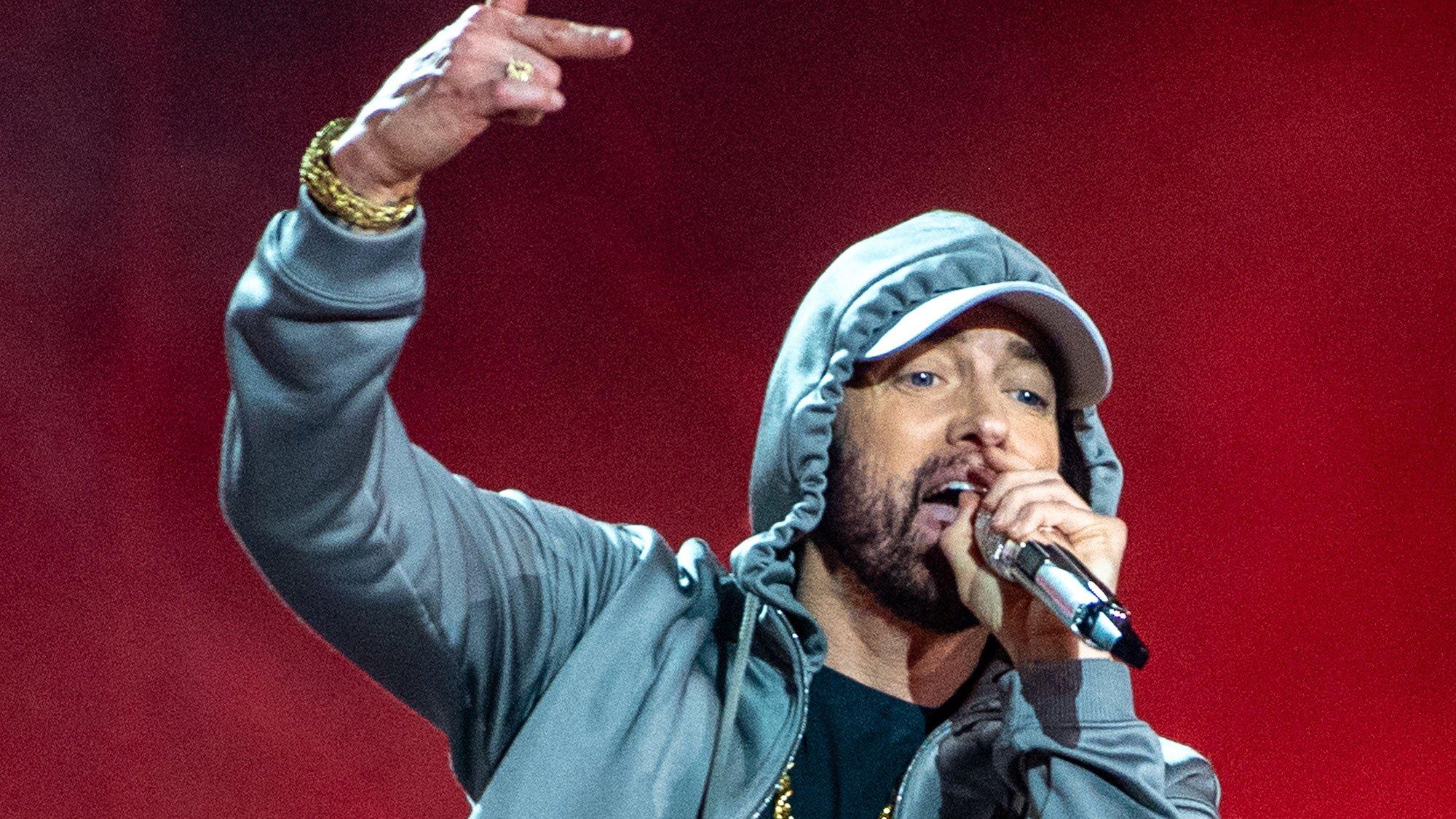
Photo: Aaron J. Thornton/GettyImages
news
New Music Friday: Listen To New Releases From Katy Perry, Eminem, Nelly Furtado & More
As temperatures rise, chill out with these fresh tracks, albums, and collaborations from Nelly Furtado, One OK Rock, Uncle Kraker, and more, all released the week of July 12.
As summer rolls on, more tracks from artists across all genres continue to drop, and we couldn't be more excited. With album releases from John Summit, HARDY, OneRepublic, and Cat Burns to fresh singles from collaborations including Alesso and Nate Smith, July 12 brings a handful of new music to enjoy.
As you stroll through the weekend, make sure to check out these nine musical projects:
Katy Perry — "Woman's World"
Serving as the lead single from 143, her first studio album since 2020, Katy Perry releases "Woman's World," a new pop track celebrating girl power and womanhood. Perry wrote the track alongside songwriter Chloe Angelides and producers Dr. Luke, Vaughn Oliver, Rocco Did It Again!, and Aaron Joseph.
Initially teasing the track through social media, the song drew attention from pop fans globally. The lead single from 143 marks both a comeback and a new era for the American Idol judge. "I set out to create a bold, exuberant, celebratory dance-pop album with the symbolic 143 numerical expression of love as a throughline message," Perry explains in a press statement.
Eminem — 'The Death of Slim Shady (Coup De Grâce)'
Guess who's back? Eminem returns with his twelfth studio album, The Death of Slim Shady (Coup De Grâce). The album appears to be his last project before retiring his notorious alter ego, Slim Shady.
A standout track on the album is "Guilty Conscience 2," a sequel to the 1999 collaboration with Dr. Dre. Leading up to the album release, Eminem dropped two singles, "Houdini" and "Tobey," featuring Big Sean and BabyTron. The album is both a blast from the past and a revived representation of the renowned Detroit-raised rapper.
Nelly Furtado — "Corazón"
Premiering the song at her Machaca Fest set, Nelly Furtado returns to music with "Corazón," the lead single off her new album 7. The track is an upbeat dance song with lyrics in both Spanish and English, along with drums and flutes that bring it to life. The track was two years in the making, according to Furtado on Instagram.
"The essence of the song is that we're just out here living and trying to do our best," Furtado told Vogue. "Even when we make mistakes, it's coming from the heart. When it comes from the heart, it's never a mistake."
7 is set to captivate both loyal fans and new listeners. Centered around the vibrant theme of community, Furtado felt an irresistible pull toward creating new music, inspired by the diverse communities around her. The spirited energy of the DJ community that breathes new life into her pop classics to this day and the passionate online community yearning for her return, spurred by her collaborations with Dom Dolla and Tove Lo and SG Lewis, have both played a crucial role in Furtado's renewed artistic journey.
Clairo — 'Charm'
Amidst the viral resurgence of her 2019 track "Bags" on TikTok, indie sensation Clairo unveils her eagerly anticipated third studio album, Charm. Co-produced with GRAMMY-nominated Leon Michels of El Michels Affair, this enchanting project underscores a striking blend of musical artistry and innovation.
"I want afterglowing, and when I call a car / Send me eyes with the knowing that I could pull it off," she sings in "Sexy To Someone," the lead single from the album. Putting introspective lyricism at the forefront of all her projects without sacrificing quality instrumentals, this album is no exception.
Alesso & Nate Smith — "I Like It"
In this genre-crossing collaboration, electronic artist Alesso joins forces with country singer Nate Smith on their new single, "I Like It." Though an unexpected blend of styles, the song blends elements from both artists' sounds, seamlessly combining country and dance as they proudly declare, they "like it like that."
With Alesso's electrifying instrumentals perfectly complementing Smith's spirited country vocals, the track captures the essence of summer in a song and is set to make waves throughout the season.
One OK Rock — "Delusion:All"
Featured as the official theme song for the upcoming movie "Kingdom IV: Return of the Great General", Japanese rock band One Ok Rock releases "Delusion:All." The upbeat, cinematic track is the band's latest contribution to the "Kingdom" movie soundtrack series, following their 2019 song "Wasted Nights."
"It's been a while since we wrote 'Wasted Nights' for the first series of 'Kingdom,' and we are very honored to be a part of the movie again," said vocalist Taka in a press statement. "We tried to reflect "the various conflicts going on in the world today and the modern society" in the song, while making it blend into the worldview of 'Kingdom.'"
Cat Burns — 'early twenties'
A love letter to her community and a deep dive into the intricacies of adulthood, Cat Burns presents her debut album, Early Twenties. Accompanying the album is a captivating short film directed by Libby Burke Wilde. The film tells the individual narratives of each character, touching on themes of mental health, relationships, and personal identity, mirroring the album's essence.
With this well-rounded creative project, Burns showcases her full artistic prowess, making these releases a testament to her pioneering creative vision.
Uncle Kracker — 'Coffee & Beer'
Making a triumphant return to music after 12 years, Uncle Kracker breaks down the boundaries between genres once again with his latest album, Coffee & Beer. The 13-track album intertwines country, pop, and rock, offering a musical journey that ranges from high-spirited anthems to laid-back, mellow tracks.
"I wanted to give my fans a soundtrack to summer and what's better than the balance of first coffee…then beer? Coffee & Beer is going to be a fun one. Cheers," Uncle Kracker said in a press statement.
Meridian Brothers — 'Mi Latinoamérica Sufre'
Drawing inspiration from the golden era of '70s Congolese rumba, Ghanaian highlife, and Nigerian afrobeat, the Meridian Brothers unveil Mi Latinoamérica Sufre. This concept album integrates the electric guitar into tropical Latin music in an innovative fashion. The album showcases a dynamic tapestry of sounds, blending cumbia, champeta, soukous, Brazilian tropicalia, and psychedelic rock, making it an exciting sonic journey.
Latest News & Exclusive Videos
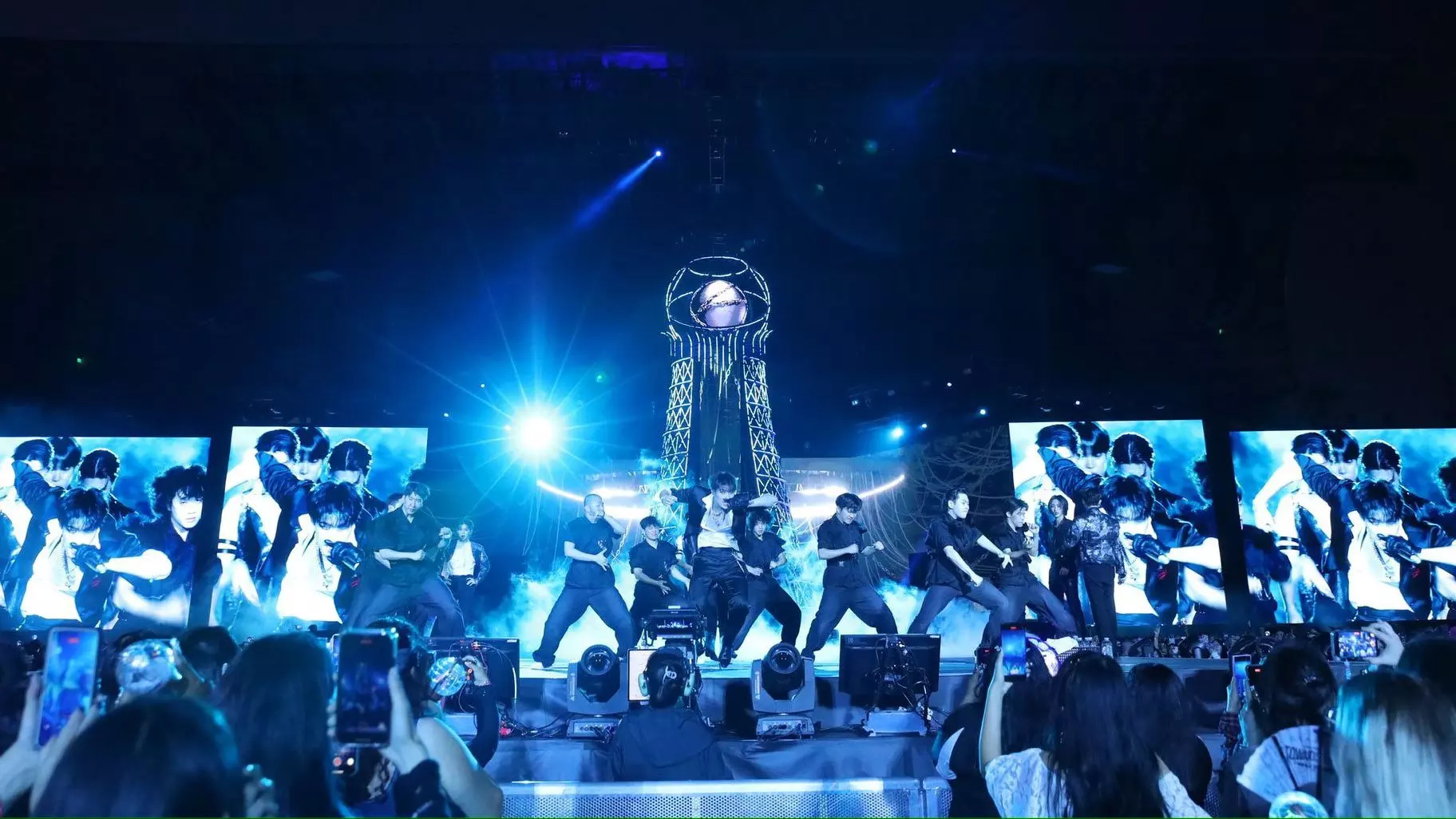
ATEEZ’s First U.S. Stadium Show Was A Triumph & Testament To Their Growth

Matthew West Performs “Don’t Stop Praying”
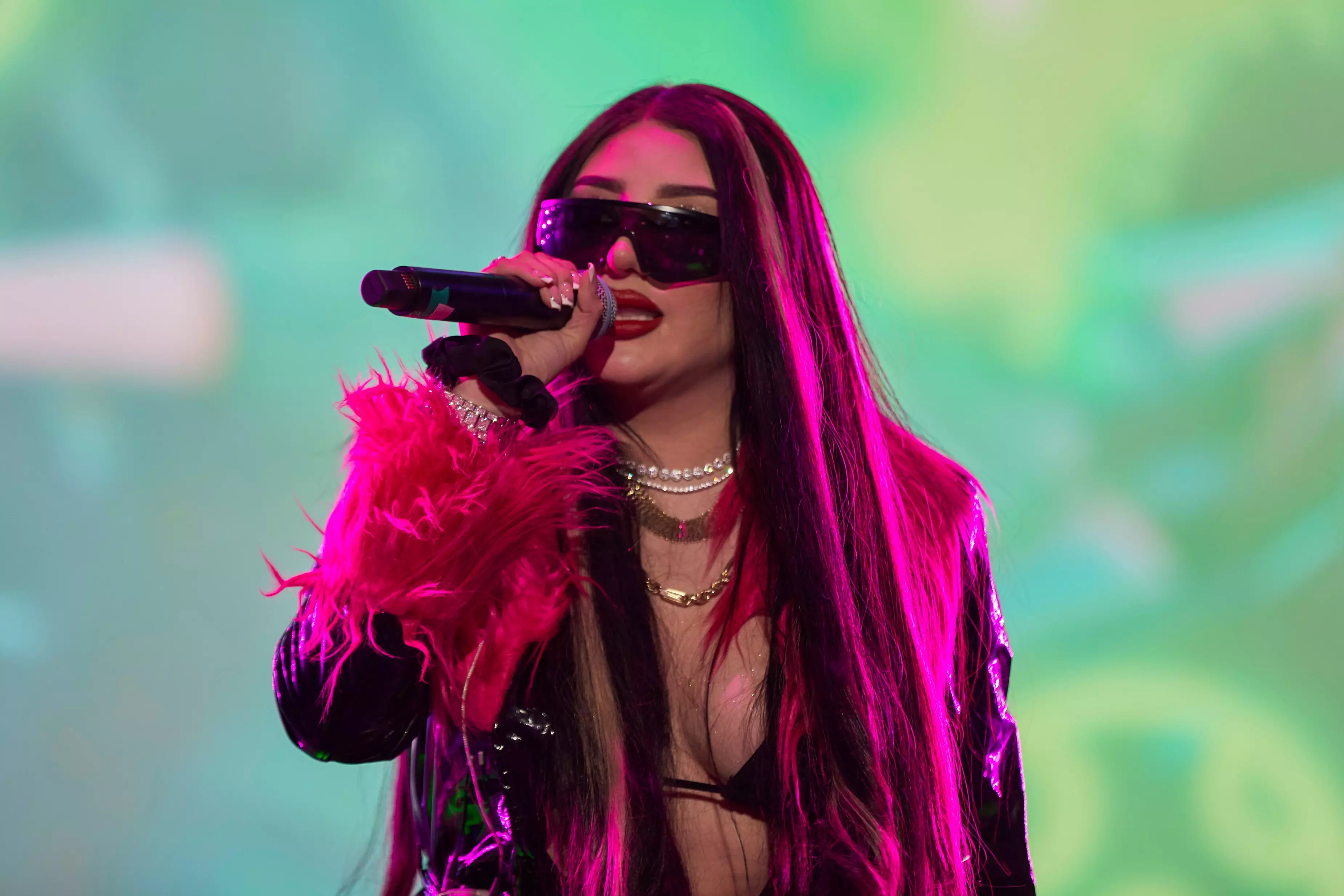
7 Artists Bringing Reggaeton Mexa To The World: El Malilla, Bellakath & More
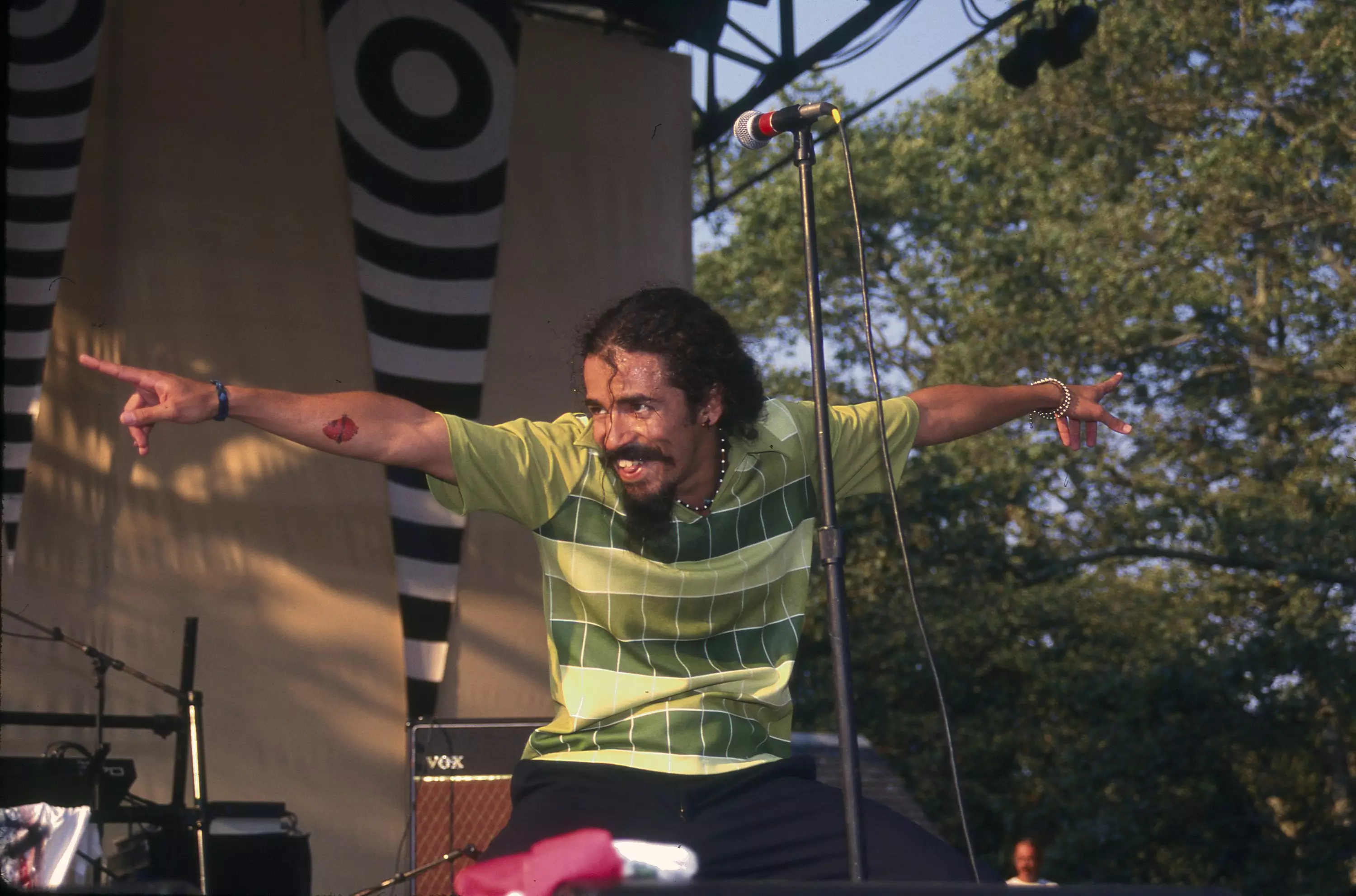
Revisiting 'Re': How Café Tacvba’s 1994 Masterpiece Changed Mexican Music Forever

5 Artists Who Graduated From GRAMMY Camp: Chappell Roan, Maren Morris, Blu DeTiger & More
.jpg)
Photo: Yoko Ono
list
5 Reasons John Lennon's 'Mind Games' Is Worth Another Shot
John Lennon's 1973 solo album 'Mind Games' never quite got its flowers, aside from its hit title track. A spectacular 2024 remix and expansion is bound to amend its so-so reputation.
As the train of Beatles remixes and expansions — solo or otherwise — chugs along, a fair question might come to mind: why John Lennon's Mind Games, and why now?
When you consider some agreed-upon classics — George Harrison's Living in the Material World, Ringo Starr's Ringo — it might seem like it skipped the line. Historically, fans and critics have rarely made much of Mind Games, mostly viewing it as an album-length shell for its totemic title track.
The 2020 best-of Lennon compilation Gimme Some Truth: The Ultimate Mixes featured "Mind Games," "Out the Blue," and "I Know (I Know)," which is about right — even in fanatical Lennon circles, few other Mind Games tracks get much shine. It's hard to imagine anyone reaching for it instead of Plastic Ono Band, or Imagine, or even the controversial, semi-outrageous Some Time in New York City.
Granted, these largely aren't A-tier Lennon songs — but still, the album's tepid reputation has little to do with the material. The original Mind Games mix is, to put it charitably, muddy — partly due to Lennon's insecurity about his voice, partly just due to that era of recordmaking.
The fourth-best Picasso is obviously still worth viewing. But not with an inch of grime on your glasses.
The Standard Deluxe Edition. Photo courtesy of Universal Music Group
That's all changed with Mind Games: The Ultimate Collection — a fairly gobsmacking makeover of the original album, out July 12. Turns out giving it this treatment was an excellent, long-overdue idea — and producer Sean Ono Lennon, remixers Rob Stevens, Sam Gannon and Paul Hicks were the best men for the job. Outtakes and deconstructed "Elemental" and "Elements" mixes round out the boxed set.
It's not that Mind Games: The Ultimate Collection reveals some sort of masterpiece. The album's still uneven; it was bashed out at New York's Record Plant in a week, and it shows. But that's been revealed to not be its downfall, but its intrinsic charm. As you sift through the expanded collection, consider these reasons you should give Mind Games another shot.
The Songs Are Better Than You Remember
Will deep cuts like "Intuition" or "Meat City" necessarily make your summer playlist? Your mileage may vary. However, a solid handful of songs you may have written off due to murky sonics are excellent Lennon.
With a proper mix, "Aisumasen (I'm Sorry)" absolutely soars — it's Lennon's slow-burning, Smokey Robinson-style mea culpa to Yoko Ono. "Bring On the Lucie (Freda Peeple)" has a rickety, communal "Give Peace a Chance" energy — and in some ways, it's a stronger song than that pacifist classic.
And on side 2, the mellow, ruminative "I Know (I Know)" and "You Are Here" sparkle — especially the almost Mazzy Star-like latter tune, with pedal steel guitarist "Sneaky" Pete Kleinow (of Flying Burrito Brothers fame) providing abundant atmosphere.
And, of course, the agreed-upon cuts are even better: "Mind Games" sounds more celestial than ever. And the gorgeous, cathartic "Out the Blue" — led by David Spinozza's classical-style playing, with his old pal Paul McCartney rubbing off on the melody — could and should lead any best-of list.
The Performances Are Killer
Part of the fun of Mind Games: The Ultimate Collection is realizing how great its performances are. They're not simply studio wrapping paper; they capture 1970s New York's finest session cats at full tilt.
Those were: Kleinow, Spinozza, keyboardist Ken Ascher, bassist Gordon Edwards, drummer Jim Keltner (sometimes along with Rick Marotta), saxophonist Michael Brecker, and backing vocalists Something Different.
All are blue-chip; the hand-in-glove rhythm section of Edwards and Keltner is especially captivating. (Just listen to Edwards' spectacular use of silence, as he funkily weaves through that title track.)
The hardcover book included in Mind Games: The Ultimate Collection is replete with the musicians' fly-on-the-wall stories from that week at the Record Plant.
"You can hear how much we're all enjoying playing together in those mixes," Keltner says in the book, praising Spinozza and Gordon. "If you're hearing John Lennon's voice in your headphones and the great Kenny Ascher playing John's chords on the keys, there's just no question of where you're going and how you're going to get there."
It Captures A Fascinating Moment In Time
"Mind Games to me was like an interim record between being a manic political lunatic to back to being a musician again," Lennon stated, according to the book. "It's a political album or an introspective album. Someone told me it was like Imagine with balls, which I liked a lot."
This creative transition reflects the upheaval in Lennon's life at the time. He no longer had Phil Spector to produce; Mind Games was his first self-production. He was struggling to stay in the country, while Nixon wanted him and his message firmly out.
Plus, Lennon recorded it a few months before his 18-month separation from Ono began — the mythologized "Lost Weekend" that was actually a creatively flourishing time. All of this gives the exhaustive Mind Games: The Ultimate Collection historical weight, on top of listening pleasure.
"[It's important to] get as complete a revealing of it as possible," Stevens, who handled the Raw Studio Mixes, tells GRAMMY.com. "Because nobody's going to be able to do it in 30 years."
John Lennon and Yoko Ono in Central Park, 1973. Photo: Bob Gruen
Moments Of Inspired Weirdness Abound
Four seconds of silence titled the "Nutopian International Anthem." A messy slab of blues rock with refrains of "Fingerlickin', chicken-pickin'" and "Chickin-suckin', mother-truckin'." The country-fried "Tight A$," basically one long double entendre.
To put it simply, you can't find such heavy concentrates of Lennonesque nuttiness on more commercial works like Imagine. Sometimes the outliers get under your skin just the same.
It's Never Sounded Better
"It's a little harsh, a little compressed," Stevens says of the original 1973 mix. "The sound's a little bit off-putting, so maybe you dismiss listening to it, in a different head. Which is why the record might not have gotten its due back then."
As such, in 2024 it's revelatory to hear Edwards' basslines so plump, Keltner's kick so defined, Ascher's lines so crystalline. When Spinozza rips into that "Aisumasen" solo, it absolutely penetrates. And, as always with these Lennon remixes, the man's voice is prioritized, and placed front and center. It doesn't dispose of the effects Lennon insecurely desired; it clarifies them.
"I get so enthusiastic," Ascher says about listening to Mind Games: The Ultimate Collection. "I say, 'Well, that could have been a hit. This could have been a hit. No, this one could have been a hit, this one." Yes is the answer.

Photo: Archive Photos/Getty Images
list
'A Hard Day's Night' Turns 60: 6 Things You Can Thank The Beatles Film & Soundtrack For
This week in 1964, the Beatles changed the world with their iconic debut film, and its fresh, exuberant soundtrack. If you like music videos, folk-rock and the song "Layla," thank 'A Hard Day's Night.'
Throughout his ongoing Got Back tour, Paul McCartney has reliably opened with "Can't Buy Me Love."
It's not the Beatles' deepest song, nor their most beloved hit — though a hit it was. But its zippy, rollicking exuberance still shines brightly; like the rest of the oldies on his setlist, the 82-year-old launches into it in its original key. For two minutes and change, we're plunged back into 1964 — and all the humor, melody, friendship and fun the Beatles bestowed with A Hard Day's Night.
This week in 1964 — at the zenith of Beatlemania, after their seismic appearance on "The Ed Sullivan Show" — the planet received Richard Lester's silly, surreal and innovative film of that name. Days after, its classic soundtrack dropped — a volley of uber-catchy bangers and philosophical ballads, and the only Beatles LP to solely feature Lennon-McCartney songs.
As with almost everything Beatles, the impact of the film and album have been etched in stone. But considering the breadth of pop culture history in its wake, Fab disciples can always use a reminder. Here are six things that wouldn't be the same without A Hard Day's Night.
All Music Videos, Forever
Right from that starting gun of an opening chord, A Hard Day's Night's camerawork alone — black and white, inspired by French New Wave and British kitchen sink dramas — pioneers everything from British spy thrillers to "The Monkees."
Across the film's 87 minutes, you're viscerally dragged into the action; you tumble through the cityscapes right along with John, Paul, George, and Ringo. Not to mention the entire music video revolution; techniques we think of as stock were brand-new here.
According to Roger Ebert: "Today when we watch TV and see quick cutting, hand-held cameras, interviews conducted on the run with moving targets, quickly intercut snatches of dialogue, music under documentary action and all the other trademarks of the modern style, we are looking at the children of A Hard Day's Night."
Emergent Folk-Rock
George Harrison's 12-string Rickenbacker didn't just lend itself to a jangly undercurrent on the A Hard Day's Night songs; the shots of Harrison playing it galvanized Roger McGuinn to pick up the futuristic instrument — and via the Byrds, give the folk canon a welcome jolt of electricity.
Entire reams of alternative rock, post-punk, power pop, indie rock, and more would follow — and if any of those mean anything to you, partly thank Lester for casting a spotlight on that Rick.
The Ultimate Love Triangle Jam
From the Byrds' "Triad" to Leonard Cohen's "Famous Blue Raincoat," music history is replete with odes to love triangles.
But none are as desperate, as mannish, as garment-rending, as Derek and the Dominoes' "Layla," where Eric Clapton lays bare his affections for his friend Harrison's wife, Pattie Boyd. Where did Harrison meet her? Why, on the set of A Hard Day's Night, where she was cast as a schoolgirl.
Debates, Debates, Debates
Say, what is that famous, clamorous opening chord of A Hard Day's Night's title track? Turns out YouTube's still trying to suss that one out.
"It is F with a G on top, but you'll have to ask Paul about the bass note to get the proper story," Harrison told an online chat in 2001 — the last year of his life.
A Certain Strain Of Loopy Humor
No wonder Harrison got in with Monty Python later in life: the effortlessly witty lads were born to play these roles — mostly a tumble of non sequiturs, one-liners and daffy retorts. (They were all brought up on the Goons, after all.) When A Hard Day's Night codified their Liverpudlian slant on everything, everyone from the Pythons to Tim and Eric received their blueprint.
The Legitimacy Of The Rock Flick
What did rock 'n' roll contribute to the film canon before the Beatles? A stream of lightweight Elvis flicks? Granted, the Beatles would churn out a few headscratchers in its wake — Magical Mystery Tour, anyone? — but A Hard Day's Night remains a game-changer for guitar boys on screen.
The best part? The Beatles would go on to change the game again, and again, and again, in so many ways. Don't say they didn't warn you — as you revisit the iconic A Hard Day's Night.
Explore The World Of The Beatles
.webp)
5 Reasons John Lennon's 'Mind Games' Is Worth Another Shot

'A Hard Day's Night' Turns 60: 6 Things You Can Thank The Beatles Film & Soundtrack For

6 Things We Learned From Disney+'s 'The Beach Boys' Documentary

5 Lesser Known Facts About The Beatles' 'Let It Be' Era: Watch The Restored 1970 Film

Catching Up With Sean Ono Lennon: His New Album 'Asterisms,' 'War Is Over!' Short & Shouting Out Yoko At The Oscars

Photo: Ebru Yildiz
interview
X's Mark The Spot: How Cigarettes After Sex Turn Difficult Memories Into Dreamy Nostalgia
"We’re all in the same boat," Greg Gonzalez says of the band’s new album, ‘X’s.' The frontman speaks with GRAMMY.com about how channeling Madonna and Marvin Gaye helped him turn his memories of a relationship into sublime dream pop.
When Greg Gonzalez sat down to start writing the next Cigarettes After Sex album, the dream pop frontman relied equally on memories of heartbreak and the ballads of the Material Girl. "‘90s Madonna was a big influence on this record," he tells GRAMMY.com with a soft smile.
Though the end result won’t be mistaken for anything off of Ray of Light, that timeless, almost mystic cloud of emotionally resonant pop carries a distinct familiarity on Cigarettes After Sex's new album, X’s.
Cigarettes After Sex has championed that sweet and sour dreaminess since their 2017 debut. Two years after that self-titled record earned rave reviews and was certified gold, the El Paso, Texas-based outfit reached even deeper for Cry. And while those records cataloged Gonzalez's heartbreaks and intimacies in sensual detail, Gonzalez knew he could reach deeper on the band’s third LP: "These songs are just exactly as memory happened."
Arriving July 12, X’s fuses Cigarettes After Sex's dream pop strengths with ‘90s pop warmth and ‘70s dance floor glow. Always one to bring listeners into the moment, Gonzalez imbues the record with a lyrical specificity that gives the taste of pink lemonade and the tension of a deteriorating relationship equal weight. On X’s, the listener can feel the immediate joy and lingering pain in equal measure.
"This is specific to me and what I'm going through, but then I go out and talk to people on tour, and they’re like, 'Oh, yeah, I went through the exact same thing,'" Gonzalez says.
Leading up to the release of X’s, Gonzalez spoke with GRAMMY.com about the appeal of ‘90s Madonna, finding a way to dance through tears, and his potential future in film scoring.
Tell me about the production process for this record. You've always been able to build nostalgic landscapes, but this record feels smoother than before. Were there any new touchpoints you were working with?
That was the thing: trying to make the grooves tighter. It was coming from more of a ‘70s Marvin Gaye kind of place, trying to make it groove like a ‘70s dance floor.
Which is an especially interesting place to be writing from when dealing with that line between love and lust.
Yeah. The stuff we've done before was really based on the late ‘50s, early ‘60s slow dance music. But it was always supposed to be dance music; I always wanted Cigarettes to be music you could dance to, even if it was a slow dance.
When I think of pop music and I think of songs that really feel powerful, they usually make you want to groove in some way. I love a lot of music that doesn't do that: ambient music or classical or some jazz. But there's so much power to music that makes you want to move. And I found throughout the years that I could just never get enough of the music that makes you want to dance. So I thought, Okay, the music that I make should be really emotional. It should feel like music you could actually cry to, but in the end it should make you want to also move in that way.
It’s the physical necessity of the music, some forward motion to match the emotional journey. I’d imagine that is related in some sense to the fact that you’re writing in a somewhat autobiographical way. Is that a way of not getting stuck in the stories, in the feelings?
I'm writing it for myself. Of course, I can't help but picture the audience in some way. But it's never like I'm writing it for them.
There is an audience that I can visualize that would like the music. [Laughs]. There have been times where we’re recording and I close my eyes to visualize an arena or a stadium to picture the music in that setting. It’s a nice feeling. And that's just based on the music that I love that I thought had similarities.
Is there any particular music that you love that fills that feeling?
There's so much music that I was obsessed with, but with Cigarettes I narrowed it down. Since I was a kid, I did every kind of style I could do. I was in power pop bands, new wave, electro, metal, really experimental bands.
But when I finally sat down and said, "Let me make an identity for Cigarettes and make it special," I had to think about what my favorite music was and what music affected me the deepest. And it was stuff like "Blue Light" by Mazzy Star or "Harvest Moon" by Neil Young or "I Love How You Love Me" by the Paris Sisters. And I kind of put all that together and that became the sound of Cigarettes. And now I do that every time I make a record: I'll make a playlist of what I want it to feel like. I mentioned Marvin Gaye. I feel like ‘90s Madonna was a big influence on this record.
Madonna in the ‘90s? No one could touch that era. I don't know when the last time you listened to that music was, but…
No, I grew up with Madonna and I used to watch the "Like A Prayer" video on repeat. It blew me away. But then I came back and I got into the ‘90s stuff, like "Take A Bow" and that record Something To Remember. It's all of the slower tunes. And that was a big influence, especially songs like "Rain."
You clearly have a diverse musical appetite, but you’ve also highlighted people with such identifiable voices — something that I think is true for Cigarettes as well. Your vocals are so front and center in the identity of the project.
That's great. The singer pretty much makes the song for me, whatever I’m listening to. The entire spirit comes down to the vocals. I'll hear a song like "Take A Bow" and be like, This feels so special. What if I made something that felt like this? If I told someone this [record] was based on Marvin Gaye and ‘90s Madonna, I don’t know if they would think it really sounded like that. It's more just trying to capture the spirit of what those records feel like.
That's what's cool about it too: You can remember those songs that were filling the air back in the ‘90s and what those feelings were, what you were up to, and draw a line between that and whatever's happening now that I wrote about.
You don’t seem like the type of person to avoid negative feelings when you come up against them in that process either. The songs feel like you just embrace it, even if it's really painful.
I've always felt that's the best way for me to go through things, to face it head on. It's supposed to be painful. You have all these really great moments with somebody and all these great memories, and then when it ends, honestly, that's the way it goes, right? That's the trade off.
Yeah, but not everybody goes through a breakup and then makes an album about it. Isn’t that like returning to the scene of the crime? How does it feel to deal with it in that way?
That's funny. The thing was, I was writing a lot of this stuff while I was still in a relationship. It took so long to finish it.
Finish the album or finish the relationship? [Laughs.]
Actually both. But yeah, the record is mostly about that one relationship, but there are little diversions with some of the songs. A lot of the key images and songs are based on that romance and little memories that I took from it.
I like that I have all those moments kind of set in stone. It’s hard to listen to this record too because I'll just really see these moments, all these memories, and it can be a bit much to flash back to all that stuff and see it so vividly. But I love that I have it. Those memories meant so much and I’m glad that they're collected and displayed in this way.
And you were able to collect them when it was happening as opposed to having some time between, which could warp those memories. Writing and recording when you’re as raw as possible makes sense, so what you capture is really honest.
That's why I like to write these songs that are as honest as possible or as autobiographical as possible, with a lot of details. If I'm writing a song and someone heard it, they would know it was about them just based on all the imagery that's in that song. It's like a little letter to them. It could be like a secret little letter to someone.
That makes me think of "Holding You, Holding Me," which is so lovely and feels as immediate as anything you’ve done.
It was the pandemic, and then the other girlfriend I had at that time, we were living in downtown L.A. and just wanted to get out of the house and stay somewhere nicer for a while. And we went to this AirBnb that was in Beverly Hills with this beautiful backyard. The song was meant to be kind of Fleetwood Mac-ish, like "Gypsy" or "Sara", that nice ‘70s country pop feel.
Over the years I’ve noticed you frequently use taste as a sensory link in your songs, which really creates an evocative moment — I’m thinking about references to candy bars and lemonade on this album. What is it about that sense that sticks out to you?
If I'm going back to memory, then that's just what really happened. We went to the store to go buy wine and candy because that was the vibe that night. "Let’s watch movies and get red wine and some candy bars." And it was just a big memory that we walked outside and it started raining. I think too, what's nice about using objects is that it gives you so much mood in a song. You can tell what the feeling is of that moment when you put those things together.
And it can have an almost universal understanding. People will understand what it means to have a "candy bar night."
That's the craziest thing. It's almost like you're trained to write universally, meaning generically. Like, "Oh, this is a song that everyone can like and the lyrics can be really simple." But I’ve found that the songs that are really detailed and were more personal stories, a song like "K." from Cigarettes After Sex, those are the songs that everyone really loves, the ones that take up being really specific.
I suppose that's pop's way of being a doorway. When you're talking about your personal experiences, somebody is going to enter into it and feel like you're singing about theirs.
You realize that we're all in the same boat. This is specific to me and what I'm going through, but then I go out and talk to people on tour, and they’re like, "Oh, yeah, I went through the exact same thing." I feel very lucky that most people I talk to that love [our] music are always saying that. It’s so special.
It makes me trust my instincts. That's the hard thing when you're writing. You're wondering, Is this too much to disclose? Is this too much information? [Laughs.] That instinct is really important to know, to trust it. That's the tough one. That's what's also therapeutic about it too. You want to share things that feel really personal because then you can process them. You can really start to unpack what those moments meant and what they can mean going forward. It gives me more confidence when I hear that kind of stuff from people.
What then is it like when you sing it for a crowd? You’re performing, but you can’t fully separate the emotion that inspired that song.
That's tough because, ideally, if I did my job well enough writing the song, then it should be hard to sing live — especially if I really see those moments when I'm singing it. It could bring me to tears, honestly, because it should feel that intense. And it's even worse if I look in the crowd and someone's crying. I can't even look at them. And that happens very often. If I started crying, my voice will stop.
That brings a real cinematic feeling to your music too, which makes me think you’d be good at scoring a film. Is that something you’d tackle?
I'm definitely obsessed with film and have been since I was a kid. The idea that I keep saying — and I almost feel like I'm going to jinx it because I keep saying it too much — is that I really want to direct and write something. And I've written some ideas down for screenplays and things. It seems like it's hard to transition from musician to filmmaker and really make it stick. But that would be something I want to do in the next 10 years. I'm giving myself 10 years. [Laughs.]
Latest News & Exclusive Videos

ATEEZ’s First U.S. Stadium Show Was A Triumph & Testament To Their Growth

Matthew West Performs “Don’t Stop Praying”

7 Artists Bringing Reggaeton Mexa To The World: El Malilla, Bellakath & More

Revisiting 'Re': How Café Tacvba’s 1994 Masterpiece Changed Mexican Music Forever

5 Artists Who Graduated From GRAMMY Camp: Chappell Roan, Maren Morris, Blu DeTiger & More
